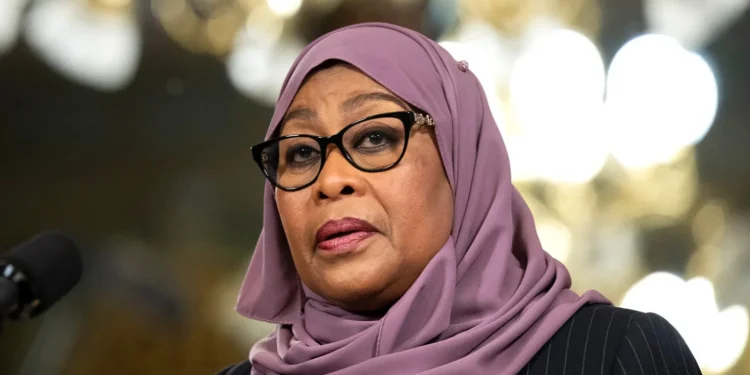Tanzanian President Samia Suluhu Hassan has been declared the winner of the country’s controversial national election with an overwhelming 97.66 percent of the vote, as opposition parties allege mass killings and international observers raise serious concerns about the credibility of the electoral process.
The National Electoral Commission announced the results on state television Saturday, showing Hassan winning in every constituency across the East African nation. State broadcasters indicated that a swift swearing-in ceremony would be conducted later the same day.
However, the election has been overshadowed by allegations of widespread violence and casualties. The opposition Chadema party has made shocking claims that approximately 700 people were killed when security forces opened fire on protesters who took to the streets following Wednesday’s vote. A party spokesperson told AFP the figure was compiled from hospital and clinic records gathered nationwide.
These claims have been corroborated by independent sources, with both a security contact and a diplomat in Dar es Salaam confirming to AFP that deaths were “in the hundreds,” though exact figures remain difficult to verify amid restricted information flow.
Hassan, who became Tanzania’s first female president following the sudden death of John Magufuli in 2021, faced virtually no meaningful opposition during the electoral contest. Major opposition candidates were either imprisoned or prevented from participating in the race. Chadema’s presidential candidate was placed on trial for treason charges, while the party itself was banned from contesting the election.
Human rights organizations had accused the Tanzanian government of unleashing what they termed a “wave of terror” in the lead-up to the vote, with reports of abductions and intimidation escalating during the final campaign days.
Election day itself descended into chaos despite the deployment of heavy military forces throughout the country. Protesters in major cities tore down campaign posters of Hassan and confronted security personnel at polling stations, prompting authorities to impose an internet blackout and declare a nationwide curfew.
Eyewitnesses who spoke with AFP described scenes of panic as soldiers patrolled urban streets while journalists faced restrictions on their ability to report freely. Most local news websites have not been updated since early Wednesday, leaving the country largely cut off from independent information sources.
Tanzania’s Foreign Minister Mahmoud Thabit Kombo defended the government’s handling of the situation in an interview with Al Jazeera, stating, “Currently, no excessive force has been used. There’s no number until now of any protesters killed.” His statement directly contradicts opposition claims and reports from independent observers.
The international community has begun expressing alarm over the situation. United Nations Secretary-General Antonio Guterres issued a statement saying he was “deeply concerned” about developments in Tanzania, specifically referencing “reports of deaths and injuries during the demonstrations.”
Through his spokesman, the UN chief appealed for calm and urged respect for fundamental human rights, though he stopped short of condemning the election or calling for an investigation into the alleged killings.
The election outcome and its violent aftermath represent a significant setback for democratic governance in Tanzania, a country that had previously been considered one of East Africa’s more stable nations. Hassan’s near-unanimous victory margin, achieved under circumstances that international observers describe as neither free nor fair, raises serious questions about the legitimacy of her continued rule and the future of political opposition in the country.
The communication blackout and movement restrictions have made it difficult for international media and human rights organizations to independently verify casualty figures or assess the full extent of the violence that has engulfed Tanzania since the controversial vote.



















